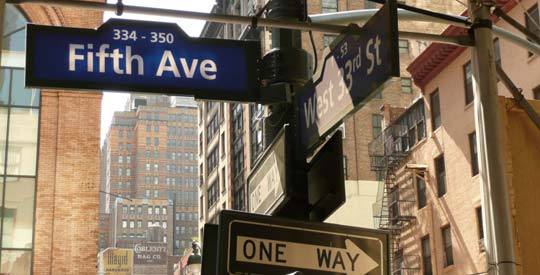Hello, everyone!
Falamos sobre a preposição in e fizemos exercícios. Falamos também que estudantes de inglês, ao aprender as preposições, muitas vezes tentam memorizar regrinhas, e isso faz com que o raciocínio se torne lento e, consequentemente, a fala também. Imagine a seguinte situação: na hora de falar “no carro” ou “no ônibus”, você precisa pensar em regras como:“será que esses são espaços específicos ou superfícies planas?“
Confuso, não é mesmo? Então, que tal somente lembrar que “no carro” é in the car e “no ônibus” é on the bus? E é simples assim! Dessa forma, é só aceitar que é assim mesmo que nativos falam e reproduzir!

Vamos então aprender combinações, conjuntos de palavras que aparecem com a preposição on:
On Monday – Na segunda
On Tuesday – Na terça
On Wednesday – Na quarta
On Thursday – Na quinta
On Friday –Na sexta
On Saturday – No sábado
On Sunday – No domingo
Vejam que se quiserem dizer “no domingo de manhã”; “no sábado à noite”; “na segunda à tarde”; etc, também usaremos on:
On Sunday (morning) – No domingo (de manhã)
On Saturday (evening) – No sábado (à noite)
On Monday (afternoon) – Na segunda (à tarde)
On Tuesday (night) – Na terça (à noite)
Quando falamos de datas:
On Christmas Day – No dia de Natal
On (May) (29th) – No dia (29) de (maio)
On (my) birthday – No (meu) aniversário

Observem agora o uso da preposição on com algumas partes do corpo. No entanto, memorizem essas combinações e continuem prestando atenção em outros exemplos, pois para dizer, por exemplo, “no meu coração”, diríamos in my heart. (Ou seja, mais uma vez, não pensem nas regras e sim nas frases prontas!):
On (my) leg – Na (minha) perna
On (my) finger – No (meu) dedo
On (my) shoulder – No (meu) ombro
Vocês devem estar agora se perguntando sobre aquela regrinha que diz que usaremos a preposição on para falar “em superfícies”. Essa regra é até verdade em alguns casos, mas não se apeguem, pois muitas vezes a equivalência difere (bastante!) e nem sempre a regra se aplica. Vejam:
On the table – Na mesa/sobre a mesa
On the dresser – Na cômoda/sobre a cômoda
Até aqui tudo bem, não é? Observem (e tentem gravar) as próximas combinações em que usaremos on:
On the bus – No ônibus
On the wall – Na parede
On the floor – No chão/no andar
On the phone – No telefone
On the farm – Na fazenda
Agora, quando falamos nomes de ruas, os americanos usam on e os britânicos normalmente usam in:
On 26th Street – Na rua 26 (AmE)
On the 9th Avenue – Na avenida 9 (AmE)
In Baker Street – Na rua Baker (BrE)
In Oxford Avenue – Na avenida Oxford (BrE)

Guys, é isso por hoje. É claro que usaremos a preposição on em outros contextos, em outras combinações e situações. Mas esse é um começo. Lembrem-se que a melhor forma de memorizar o que aprendemos hoje é anotar e criar novos exemplos.
Bye for now!
Bruna Iubel 30/07/2015 http://www.influx.com.br/blog/2015/07/31/quando-usar-in-on-at-em-ingles-parte-ii/#sthash.jrv6vN1n.dpuf


